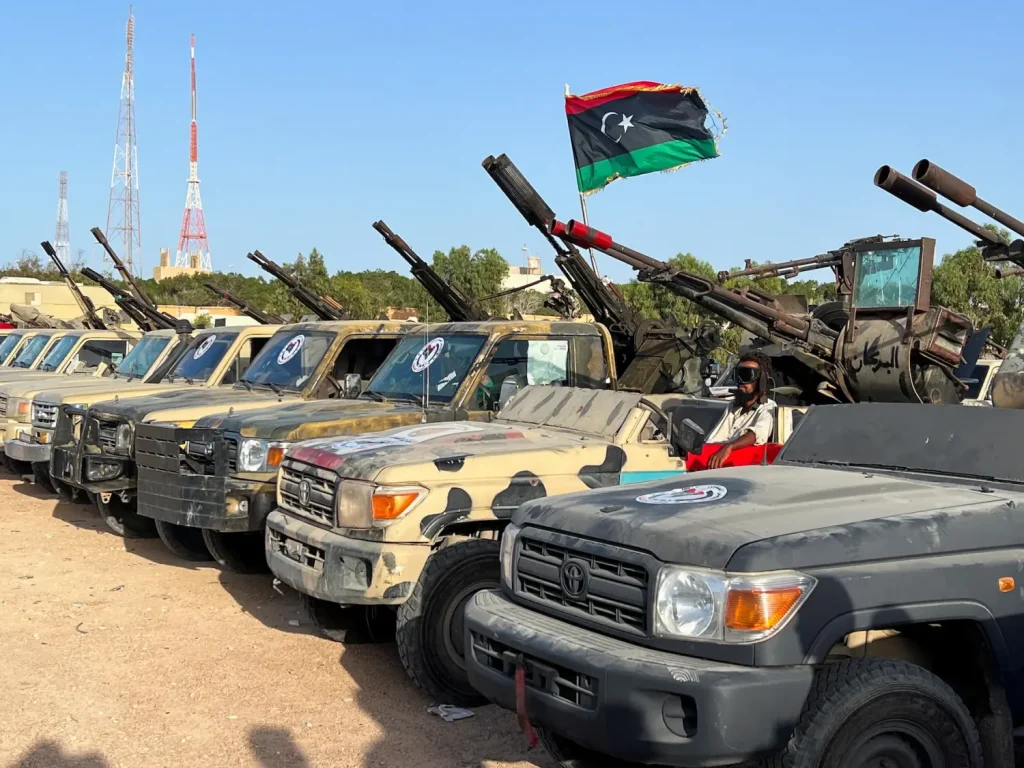Libyan armed groups and government authorities have reached an agreement to secure key infrastructure in Tripoli, Interior Minister Imad Trabelsi announced on Friday. The accord comes after heightened concerns from the UN about recent clashes and a deepening crisis surrounding the Central Bank of Libya.
Libya, a North African nation of 6.8 million people, has been mired in instability since the 2011 NATO-backed uprising that ousted longtime dictator Moamer Kadhafi. The country remains divided, with a UN-recognised government in Tripoli led by Prime Minister Abdulhamid Dbeibah, and a rival administration in the east backed by military leader Khalifa Haftar.
In a coordinated effort with the Ministry of Defence, Trabelsi stated that all security services in Tripoli had agreed to secure airports, land borders, and government buildings, including the Central Bank of Libya. The agreement is set to be implemented immediately.

The Central Bank’s governor, Seddik al-Kabir, has come under fire from figures close to Prime Minister Dbeibah for his management of Libya’s oil revenues and state finances. The tensions escalated in recent weeks, leading to armed gatherings outside the bank’s headquarters and the brief kidnapping of a bank official, which prompted a temporary shutdown of operations.
On Thursday, the UN mission in Libya (UNSMIL) called for restraint amid reports of military mobilization in Tripoli, warning against the use of force to resolve the bank crisis. The US embassy echoed these concerns, stressing that any violent actions could jeopardize the bank’s global financial standing.
As the situation remains volatile, the agreement aims to stabilise Tripoli and protect its vital institutions from further unrest.


